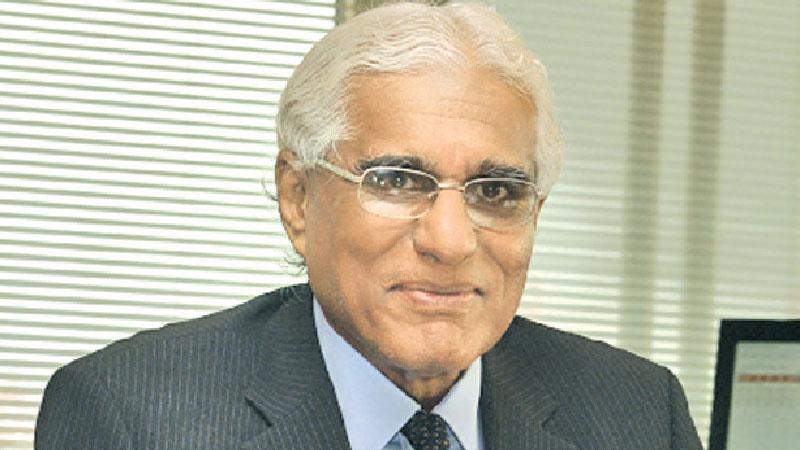
Explains three key exogenous reasons for current predicament, enlightens on how wrong economic policies in the past that led to Current Account Deficits has aggravated the forex dilemma
“The answer to the question why there is pressure on the exchange rate at this point lies in three significant external developments as well as certain domestic characteristics of our economy,” said Dr.Coomaraswamy, a Guest Speaker at the event.
Normalisation of interest rates in advanced world
Explaining the three external exogenous factors, he said the normalisation of monetary policy (both in the US and Europe and to a lesser extent in Japan after the unconventional monetary policy adopted in the wake of the global financial crisis in 2008) has led to a rise in the interest rates in the United States. This consequently led to large amounts of capital flowing out of emerging markets back into the United States.
“In the wake of the global financial crisis in 2008, money flowed out of the advanced economies including the US into emerging market economies like Sri Lanka. At the time, people in the advanced countries were in search of higher return because interest rates were so low in the advanced world,” the governor said.
However, he said that although at the time there was a favorable external environment, where even Sri Lanka was able to go out and borrow significant amounts of money from capital markets – the situation has shifted dramatically and money is now going out of emerging markets, including Sri Lanka.
“There has already been three interest rate increases this year and there’s likely to be a fourth in December. Hence, we have seen money going out of Sri Lanka’s government securities market in which foreigners have invested money in our Treasury bills and bonds and out of the Colombo Stock Exchange.
“That is putting pressure on the exchange rate because for this money to go out there is demand on the US. Dollar,” Dr. Coomaraswamy explained noting that when there is additional demand on the US dollars and the supply is limited, eventually the exchange rate depreciates.
Geopolitical tensions
Pointing out the second reason as geopolitical tensions, he said the US-China trade war is creating uncertainty in the global economic environment. Further, the US - Iran tensions are also creating uncertainty, particularly, in the oil market and thirdly the geopolitics in the Middle East as a whole with a group of countries allied around Saudi Arabia and others allied around Iran, has elevated tensions, he highlighted.
“When you have elevated tension and uncertainty at the global level brought about by factors like the trade war, uncertainty in key oil producer countries and tension in the whole of the Middle East, what happens is that money moves to safe havens,” the Governor elaborated. Stressing that the main ‘safe haven’ currency is the US Dollar which is the reserve of the international financial system, the Japanese yen and also the Swiss Franc, he noted the elevated uncertainty in the global context has made money flows into these safe havens.
“When money goes out of emerging markets into these safe haven countries, this leads to another pressure on emerging market currencies including the Sri Lankan Rupee,” the governor noted.
Rising oil prices
Speaking further the Governor explained that the third exogenous pressure – which Sri Lanka has no control over - comes from the higher oil prices.
“Countries which are not oil importers such as Sri Lanka, when oil prices increase then there is pressure on their external account”, Dr. Coomaraswamy noted.
Hence, he outlined that countries most vulnerable when there are exogenous factors are those with current account deficits in the current account of the Balance of Payments. This is because money outflows are greater than inflows and hence borrowing is required to fund the deficit.
Internal reason
On the other hand, the Governor highlighted that the current account deficit however is one of Sri Lanka’s own doing due to wrong economic policies adopted in the past.
“For many years, we’ve had wrong economic policies. We allowed our exports to come down from 33% of GDP in 2002 to 12.4% of GDP in 2015. “At the same time, we went out and borrowed large amounts of money - a lot of it on commercial terms and much of it went into vanity projects which did not give a decent rate of return,” he added.
Therefore, he noted that Sri Lanka is in a very “vulnerable position as the world economic situation has turned against the country and the island is now incapable to counter that.
